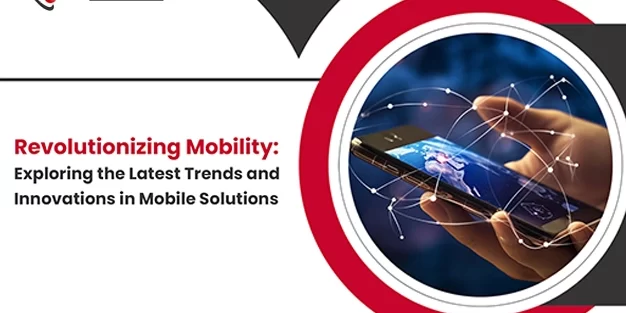In today’s fast-paced digital landscape, mobility is more than just a convenience – it’s a necessity. From smartphones to wearables, mobile solutions have become integral parts of our daily lives, revolutionizing the way we work, communicate, and navigate the world around us. In this blog, we’ll delve into the latest trends and innovations shaping the future of mobility.
1. 5G Connectivity: One of the most significant advancements in mobile technology is the widespread adoption of 5G connectivity. With speeds up to 100 times faster than 4G, 5G opens up a world of possibilities for mobile solutions. From seamless video streaming to real-time gaming, 5G enables applications that were previously impractical on mobile devices. Moreover, its low latency and high reliability make it ideal for emerging technologies like autonomous vehicles and remote surgery.
2. Edge Computing: Another trend driving the evolution of mobile solutions is edge computing. By processing data closer to the source – whether it’s a smartphone or IoT device – edge computing reduces latency and enhances efficiency. This enables real-time analytics, AI inference, and immersive experiences without relying solely on cloud infrastructure. As a result, mobile applications can deliver faster response times and improved user experiences, even in areas with limited connectivity.
3. AI-Powered Personalization: Artificial intelligence (AI) is revolutionizing mobile solutions by enabling personalized experiences tailored to each user’s preferences and behavior. Whether it’s recommending products, predicting traffic patterns, or optimizing energy usage, AI algorithms analyze vast amounts of data to deliver relevant insights and recommendations in real-time. As AI continues to advance, mobile applications will become increasingly intuitive and adaptive, anticipating users’ needs before they even realize them.
4. Augmented Reality (AR) and Virtual Reality (VR): AR and VR technologies are transforming the way we interact with mobile devices, blurring the line between the physical and digital worlds. From immersive gaming experiences to interactive shopping platforms, AR and VR enhance engagement and drive innovation across various industries. With the integration of spatial computing and 5G connectivity, the capabilities of AR and VR applications are poised to reach new heights, unlocking limitless possibilities for mobile solutions.
5. Sustainable Mobility: As concerns about climate change continue to grow, there is a growing emphasis on sustainable mobility solutions. From electric vehicles to bike-sharing programs, mobile technologies play a crucial role in promoting eco-friendly transportation options. Mobile applications enable users to access real-time information about public transit, find carpooling opportunities, and even locate electric vehicle charging stations, empowering individuals to make environmentally conscious choices in their daily lives.
In conclusion, the landscape of mobile solutions is constantly evolving, driven by technological advancements and changing consumer demands. From the widespread adoption of 5G connectivity to the proliferation of AI-powered personalization, the latest trends and innovations are revolutionizing the way we interact with mobile devices. By staying abreast of these developments, businesses can harness the power of mobility to enhance productivity, improve user experiences, and drive innovation across various industries.




